Best Online Bachelor of Public Policy (BPP) Degree Programs
Shaping Society through a Bachelor’s Degree in Public Policy
A bachelor’s degree in public policy is the gateway to an impactful career in public service, government, or nonprofit organizations. This degree program equips students with the analytical, ethical, and decision-making skills to address complex societal challenges. With the flexibility of an online bachelor’s degree public policy program, students can balance their education with work and other commitments. This guide will help you explore the best programs, curriculum highlights, and admissions requirements to start your journey in the dynamic field of public policy.
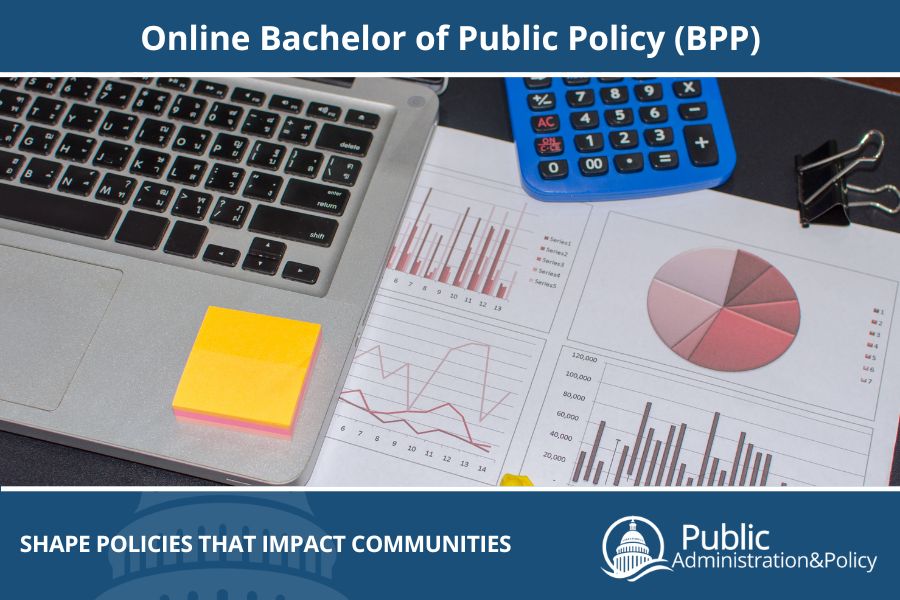
Table of Contents
2026 Best Online Bachelor of Public Policy (BPP) Degree Programs
University of Missouri-St Louis
Saint Louis, MO - Public 4-Year - umsl.edu
Bachelor's - BS in Public Policy and Administration
Concentration: public administration - Online Learning - Visit Website
University of Missouri-St Louis offers an online BS in Public Policy and Administration with a concentration in public administration. This bachelor's program focuses on developing critical skills in policy analysis, research, and communication for government and nonprofit sectors. As an online degree, it provides flexible learning with internship opportunities. The program emphasizes practical experience to address societal challenges, with projected 7% employment growth and $128,020 median salary. For admission, ACT or SAT scores are typically required for this bachelor's level program.
- Online bachelor's degree format
- Three emphasis area options
- Internship opportunities included
- 7% employment growth projected
- $128,020 median annual salary
- Concentrations in public policy
- Accelerated dual degree option
- Skills in policy analysis
- Government and nonprofit focus
- Career-ready curriculum
Bachelor's - BS in Public Policy and Administration
Concentration: nonprofit management - Online Learning - Visit Website
The University of Missouri-St Louis provides an online BS in Public Policy and Administration concentrating on nonprofit management. This bachelor's program prepares students for impactful careers through a curriculum emphasizing policy analysis, decision-making, and communication skills. The online format includes internship experiences and offers three emphasis areas for career flexibility. With 7% projected employment growth and $128,020 median salary, graduates enter dynamic public service roles. Entrance exams like ACT or SAT are generally required for this bachelor's degree admission.
- Bachelor of Science program
- Online program format
- Three emphasis areas available
- Internship opportunities included
- Accelerated dual degree option
- Employment growth over 7%
- Median salary $128,020
- Multiple career path options
Bachelor's - BS in Public Policy and Administration
Concentration: public policy - Online Learning - Visit Website
University of Missouri-St Louis delivers an online BS in Public Policy and Administration with a public policy concentration. This bachelor's program equips students with strategic policymaking skills for government and nonprofit sectors, featuring specializations in areas like American politics and urban policy. The online degree includes internship opportunities and emphasizes practical problem-solving. With 7% employment growth projection and $128,020 median salary, it offers transformative career pathways. ACT or SAT entrance exams are typically required for admission to this bachelor's level program.
- Bachelor of Science Degree
- Online Program Format
- Three Emphasis Areas
- Internship Opportunities
- Accelerated Dual Degree Option
- Diverse Career Paths
- Political Science Concentration
- 7% Employment Growth
- $128,020 Median Salary
- Practical Problem-Solving Skills
Arizona State University
Tempe, AZ - Public 4-Year - asu.edu
Bachelor's - Public Service and Public Policy
Online & Campus Based - Visit Website
Arizona State University's Bachelor of Science in Public Service and Public Policy is a hybrid online program that prepares students for government and policy careers through theoretical knowledge and professional skills. Located in downtown Phoenix, it offers over 10 concentration areas and practical experience, positioning graduates for roles in public agencies and nonprofits. This bachelor's program requires ACT or SAT entrance exams. The hybrid format combines online learning with campus immersion.
- Downtown Phoenix campus with government proximity
- 10+ concentration areas available
- Prepares leaders for public sector careers
Bachelor's - Public Service and Public Policy
Concentration: Sustainability - Online & Campus Based - Visit Website
Arizona State University's Bachelor of Science in Public Service and Public Policy with a Sustainability concentration is a hybrid online program focused on environmental policy solutions. Students learn to address critical sustainability challenges through public leadership and management skills. Located in downtown Phoenix, it prepares graduates for impactful careers in public and nonprofit sectors. This bachelor's program requires ACT or SAT entrance exams. The hybrid format blends online coursework with campus-based learning.
- Sustainability-focused public policy degree
- Professional preparation for public sector careers
- Downtown Phoenix campus learning environment
Bachelor's - Public Service and Public Policy
Concentration: Health Policy - Online & Campus Based - Visit Website
Arizona State University's Bachelor of Science in Public Service and Public Policy with a Health Policy concentration is a hybrid online program that equips students to influence community change through healthcare policy. Located in downtown Phoenix, it provides essential leadership skills and explores government dynamics and policy development. This bachelor's program requires ACT or SAT entrance exams. The hybrid format offers online learning combined with campus immersion experiences.
- Downtown Phoenix campus with government proximity
- 10+ specialized concentration areas available
- Balanced theoretical and professional curriculum
Syracuse University
Syracuse, NY - Private 4-year - syracuse.edu
Bachelor's - Policy Studies
Online Learning - Visit Website
Syracuse University offers an online Bachelor of Professional Studies in Policy Studies through the prestigious Maxwell School. This 100% online program requires 120 credits and allows transfer of up to 90 credits, with six annual start dates and eight-week courses for flexibility. No ACT or SAT is required for admission. The curriculum develops analytical skills to tackle social and economic challenges, featuring quantitative research and policy implementation strategies. Part-time study options and synchronized learning enhance accessibility for aspiring policy leaders seeking diverse career pathways.
- 100% Online Degree
- 120 Total Credits Required
- 6 Annual Start Dates
- 8-Week Course Format
- Transfer Up to 90 Credits
- Part-Time Study Option
- Synchronized Learning Experience
- Maxwell School Partnership
- Start Now Grant Available
- Diverse Career Pathways
Louisiana State University and Agricultural & Mechanical College
Baton Rouge, LA - Public 4-Year - lsu.edu
Bachelor's - Bachelor of Arts in Political Science
Online Learning - Visit Website
Louisiana State University's online Bachelor of Arts in Political Science provides comprehensive training in critical analysis and political systems, preparing graduates for diverse careers in government, law, and public affairs. This 120-credit program costs $399 per credit hour and features a flexible online format with internship opportunities. Admission requires a 3.0 high school core GPA or transfer equivalent, with test-optional flexibility for ACT/SAT exams. The program emphasizes career versatility and law school preparation through its award-winning faculty and practical curriculum.
- Fully Online Degree
- Law & Legal Concentration
- Award-Winning Faculty
- 120 Credit Hours
- $399 Per Credit
- Internship Opportunities
- Prepares for Law School
- Career Versatility
Bachelor's - Bachelor of Arts in Political Science
Concentration: Law and Legal Systems - Online Learning - Visit Website
LSU's online Bachelor of Arts in Political Science with a Law and Legal Systems concentration focuses specifically on legal frameworks and policy analysis for aspiring legal professionals. This 120-credit online program costs approximately $47,880 total and develops critical thinking skills for careers in law, government, and public affairs. Admission requires a 3.0 high school GPA or 2.5 transfer GPA, with test-optional ACT/SAT requirements. The program offers multiple career pathways through its flexible online format, optional internships, and specialized legal curriculum taught by award-winning faculty.
- 120 total credit hours
- Law & Legal Systems concentration
- Flexible online format
- Award-winning faculty
- Multiple career pathways
- Optional internship program
- Test-optional admissions
- Develops critical thinking skills
Liberty University
Lynchburg, VA - Private 4-year - liberty.edu
Bachelor's - Bachelor of Science in Law and Policy – Public Policy
Online Learning - Visit Website
Liberty University's online Bachelor of Science in Law and Policy - Public Policy is a 120-credit program that prepares students for careers in policy-making through legal reasoning and ethical decision-making. This 100% online degree features 8-week courses at $390 per credit hour and requires no standardized testing for admission. Students can transfer up to 75% of credits and benefit from military discounts. The curriculum integrates a biblical worldview while developing practical skills for policy advocacy, making it ideal for aspiring city managers and legislative professionals seeking to shape community and national policies.
- 100% online program
- 120 total credit hours
- 8-week course format
- $390 per credit hour
- No standardized testing
- Transfer up to 75% credits
- Biblical worldview integration
- Multiple career paths
- Potential military discounts
Bachelor's - Bachelor of Science in Government – Politics and Policy
Online Learning - Visit Website
Liberty University's online Bachelor of Science in Government - Politics and Policy offers a comprehensive 120-credit program focused on political analysis and policy creation at various government levels. This 100% online degree requires no standardized testing and features 8-week courses at $390 per credit hour. Students can transfer up to 75% of credits and access military tuition discounts. Through the Helms School of Government, the program provides a biblical constitutional perspective, preparing graduates for impactful careers in public administration, nonprofit sectors, and government through flexible online learning.
- 100% online degree program
- 120 total credit hours
- 8-week course format
- Transfer up to 75% credits
- No standardized testing required
- Military tuition discount available
- Undergraduate tuition $390/credit
- Multiple career pathway options
- Biblical constitutional perspective
- Helms School of Government program
University of Colorado Denver/Anschutz Medical Campus
Denver, CO - Public 4-Year - ucdenver.edu
Bachelor's - Bachelor of Arts in Public Administration
Online & Campus Based - Visit Website
The University of Colorado Denver/Anschutz Medical Campus offers an online Bachelor of Arts in Public Administration, a hybrid program blending digital coursework with in-person options. This versatile degree equips students for leadership roles in government and nonprofit sectors, emphasizing critical skills in communication and analysis. With a focus on accessibility, it features affordable tuition, including discounts for western state residents, and allows transfer of professional experience credits. The program typically requires four years to complete and does not mandate ACT or SAT entrance exams, making it a flexible pathway to public service careers.
- Versatile degree preparing leaders for public and nonprofit sectors
- Flexible online learning with professional experience credits
- Nonprofit management concentration available
Bachelor's - Political Science - Politics and Public Policy Option, BA
Online & Campus Based - Visit Website
At the University of Colorado Denver/Anschutz Medical Campus, the online Bachelor of Arts in Political Science with a Politics and Public Policy Option provides comprehensive training in policy analysis and political theory. This hybrid program prepares students for dynamic roles in public administration by exploring policy challenges at various governmental levels. It emphasizes experiential learning to develop critical thinking and analytical skills for addressing societal issues. As a bachelor's-level program, it does not require ACT or SAT entrance exams, offering a practical route to careers in the public sector through its flexible online format.
- Comprehensive policy analysis training
- Experiential learning opportunities
- Pathway to public sector careers
Florida International University
Miami, FL - Public 4-Year - fiu.edu
Bachelor's - Bachelor of Public Policy and Service
Online Learning - Visit Website
Florida International University's online Bachelor of Public Policy and Service equips students with essential skills for public sector careers. This fully digital program focuses on research, budget management, and community engagement, preparing graduates to tackle urban challenges at various governance levels. As a bachelor's program, it requires ACT or SAT scores for admission. The curriculum, delivered by experienced faculty, emphasizes practical applications in government and nonprofit sectors, supported by flexible scheduling and personalized coaching to enhance student success in this dynamic field.
- Fully online degree with flexible start dates
- Prepare for diverse public service careers
- Personal success coach supports academic journey
Empire State University
Saratoga Springs, NY - Public 4-Year - sunyempire.edu
Bachelor's - Public Affairs
Online Learning - Visit Website
Empire State University's online Bachelor of Public Affairs program prepares students for leadership roles in government, nonprofits, and public service through an interdisciplinary curriculum. This flexible program emphasizes practical skills, ethical decision-making, and research expertise, allowing students to address complex societal challenges. With personalized degree planning and multiple concentration pathways, students can tailor their studies to career goals in areas like public administration, policy analysis, or emergency management. No ACT or SAT entrance exam is required for this online bachelor's program, which focuses on developing critical analytical abilities across nine foundational knowledge areas.
- Interdisciplinary Bachelor's degree options
- Personalized degree planning
- Multiple concentration pathways
- Public service career preparation
- Flexible academic mentorship
- Nine foundational knowledge areas
- Comprehensive research skill development
- Ethical leadership training
- Broad career opportunity focus
National University
San Diego, CA - Private 4-year - nu.edu
Bachelor's - Bachelor of Public Administration
Concentration: waterwork management - Online Learning - Visit Website
National University's online Bachelor of Public Administration offers a specialized concentration in waterwork management, preparing students for careers in government and nonprofit sectors focused on water resource policy and administration. This 100% online program features an accelerated four-week course format ideal for working professionals, with no ACT or SAT entrance exam required and year-round admissions. The curriculum blends theoretical foundations with practical applications in policy development, resource management, and organizational leadership specific to water systems, enabling faster degree completion through flexible scheduling.
- 100% Online Degree Program
- Prepares Students for Public Sector Careers
- Four-Week Accelerated Course Format
Arizona State University Online
Scottsdale, AZ - Public 4-Year - asu.edu
Bachelor's - Bachelor of Science in Public Service and Public Policy
Online Learning - Visit Website
Arizona State University Digital Immersion's online Bachelor of Science in Public Service and Public Policy prepares students for impactful careers across sectors. This 120-credit program features 40 classes, each lasting 7.5 weeks, with a collaborative capstone project. The curriculum develops leadership, policy analysis, and management skills to address societal challenges. As an online bachelor's program, it requires ACT or SAT entrance exams for admission. Accelerated master's pathways are available, and the diploma does not specify online completion. The program is military-friendly and offers multiple career opportunities, with the next start date on March 17, 2025.
- Online Bachelor's degree
- 120 total credit hours
- 40 total classes
- 7.5 weeks per class
- Next start date: 03/17/2025
- Accelerated master's options
- No online specification on diploma
- Collaborative capstone project
- Multiple career path opportunities
Florida International University
Miami, FL
Florida International University’s Bachelor of Public Policy and Service features 120 credit hours focusing on public service careers, offered online with no SAT requirement.

University of Missouri-St Louis
Saint Louis, MO
The University of Missouri-St. Louis’s BA in Public Policy emphasizes policy analysis and management skills in a campus-based program.

Western Illinois University
Macomb, IL
Western Illinois University’s Bachelor of Public Policy (BPP) provides foundational knowledge in policy and governance through a campus-based program.
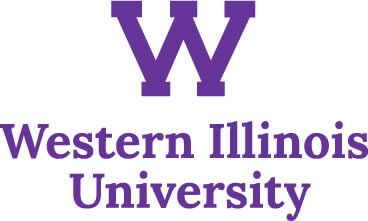
University of California-Los Angeles
Los Angeles, CA
UCLA’s Bachelor of Arts in Public Affairs combines critical thinking with experiential learning in a comprehensive campus program with no standardized test requirement.
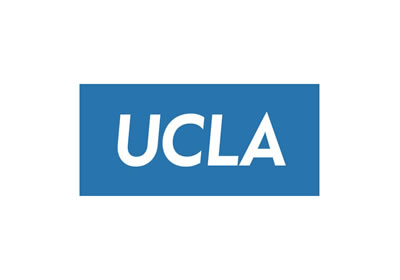
Syracuse University
Syracuse, NY
Syracuse University’s Policy Studies Program integrates public affairs and social sciences with no SAT/ACT requirement, available on campus.
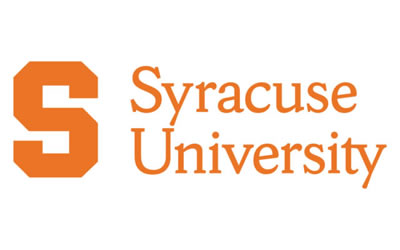
University of California-Irvine
Irvine, CA
UC Irvine’s BA in Public Health Policy combines multidisciplinary approaches to health policy and management in a campus-based program with no SAT or ACT required.
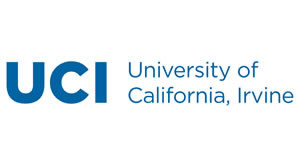
University of Wisconsin-Madison
Madison, WI
The University of Wisconsin-Madison’s Bachelor of Public Policy (BPP) offers foundational skills in public policy and administration through a campus-based curriculum.
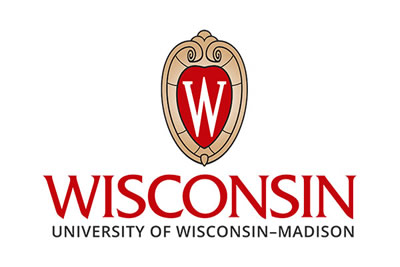
Stanford University
Stanford, CA
Stanford University’s Public Policy (BA) integrates economics and quantitative methods with a focus on health policy, requiring no SAT/ACT.
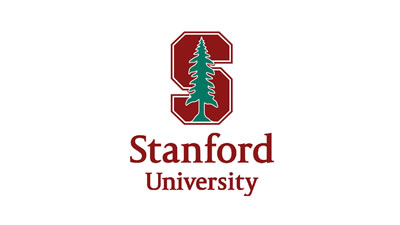
University of Washington-Seattle Campus
Seattle, WA
The University of Washington-Seattle’s Bachelor of Public Policy (BPP) provides foundational policy skills in a campus-based program.
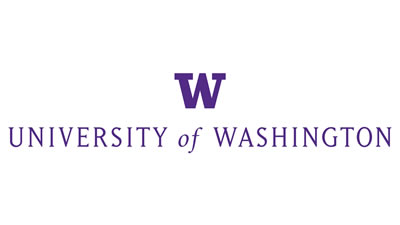
Louisiana State University and Agricultural & Mechanical College
Baton Rouge, LA
Louisiana State University offers a Bachelor of Arts in Political Science focusing on law and legal systems, delivered online with no SAT or ACT requirement.
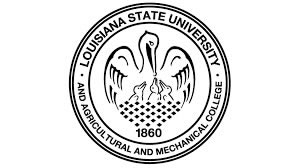
Who Should Get a Bachelor of Public Policy Degree?
A bachelor’s degree in public policy is ideal for individuals passionate about public service, government agencies, and solving societal challenges. Whether aspiring to be a public manager, policy analyst, or advocate for nonprofit organizations, this degree provides a versatile foundation.
This Degree Is Perfect For:
- Students who want to understand the intersection of public policy politics and practical implementation.
- Aspiring leaders interested in addressing issues in government agencies, education, healthcare, or criminal justice.
- Individuals planning to pursue a Master of Public Administration (MPA) or related graduate degree.
Pros and Cons of a Bachelor of Public Policy Degree
| Pros | Cons |
|---|---|
| Offers flexibility with online bachelor’s degree public policy options. | Entry-level salaries can vary, especially in the nonprofit sector. |
| Prepares students with skills in research methods and policy analysis. | It may require further education, such as an MPA or Master of Public Policy (MPP). |
| Opens doors to careers in both government agencies and the private sector. | It focuses primarily on policy, which may limit appeal for students exploring broader fields. |
| Equips students with skills applicable to criminal justice, healthcare, and education. | Requires strong analytical and data-driven thinking, which might only suit some students. |
Admissions Requirements
Admission to a bachelor’s degree in public policy program typically requires applicants to meet specific program requirements. These ensure students are academically prepared to succeed in a rigorous and analytical degree program.
Typical Admissions Requirements
- High School Diploma or Equivalent (GED): A baseline requirement for all programs.
- Minimum GPA: Most schools require a GPA of 2.5 or higher.
- Standardized Test Scores: ACT/SAT scores are often required, though some programs waive this for online bachelor’s degree public policy applicants.
- Personal Statement: Applicants may need to write an essay explaining their interest in public policy and public service.
- Letters of Recommendation: Typically 2-3 from teachers, employers, or mentors.
- Application Fee: Ranges from $30 to $75, depending on the school.
Check each school’s official website for detailed requirements and deadlines. For general insights into the application process, visit the U.S. News & World Report College Admissions Guide.
Online Bachelor of Public Policy Curriculum
The online Bachelor of Public Policy curriculum in public policy typically combines core courses in policy analysis and decision-making with electives that allow students to focus on their areas of interest. Programs emphasize practical skills like research methods, public policy politics, and data analysis.
Key Curriculum Features
- Credit Requirements: Programs generally require 120 credits for graduation, with approximately 40 credits focused on public policy courses.
- Internships: Many programs require students to complete 120–200 hours of internship experience with government agencies, think tanks, or nonprofit organizations.
- Capstone Projects: These projects require students to analyze a real-world policy issue and propose evidence-based solutions.
Typical Course Titles
- Introduction to Public Policy
- Political Science Fundamentals
- Ethics in Public Service
- Public Policy and the Law
- Economics for Policy Analysis
- Research Methods in Public Policy
- Data Analysis for Policy Decisions
- State and Local Government Policy
- Global Issues in Public Policy
- Public Policy and Criminal Justice
These courses equip students with a robust understanding of policy design, stakeholder engagement, and the practicalities of managing public programs.
Advantages of Online Learning
An online Bachelor of Public Policy offers unique benefits for students balancing education with other commitments:
- Flexibility: Study on your schedule, ideal for working professionals or those with family responsibilities.
- Accessibility: Enroll in top programs across the United States without relocating.
- Cost Savings: Online programs often have lower tuition and fewer additional fees than on-campus counterparts.
To find affordable programs, visit resources like the National Center for Education Statistics.
Sources for Bachelor of Public Policy
- National Center for Education Statistics (NCES). “College Navigator.” https://nces.ed.gov
- U.S. News & World Report. “Best Online Bachelor’s Degree Programs.” https://www.usnews.com/education
- National Association of Schools of Public Affairs and Administration (NASPAA). “Accreditation Standards for Public Policy and Administration.” https://www.naspaa.org
- Council for Higher Education Accreditation (CHEA). “Accreditation Guide for Students.” https://www.chea.org
- Bureau of Labor Statistics (BLS). “Occupational Outlook Handbook: Policy Analysts and Public Administration Careers.” https://www.bls.gov
Acknowledgments
- Data and rankings referenced are based on publicly available information from accredited institutions and authoritative sources.
- Images are conceptual representations created to enhance the understanding of public policy education.